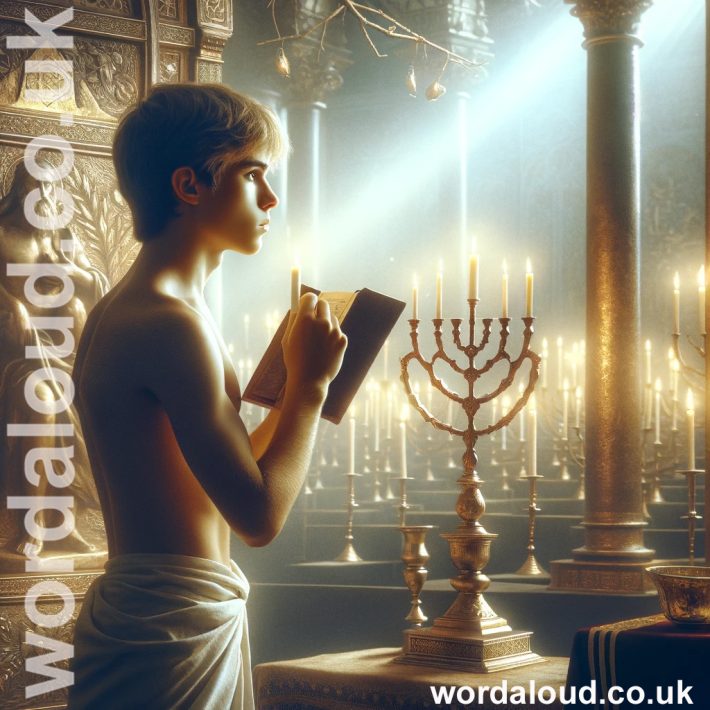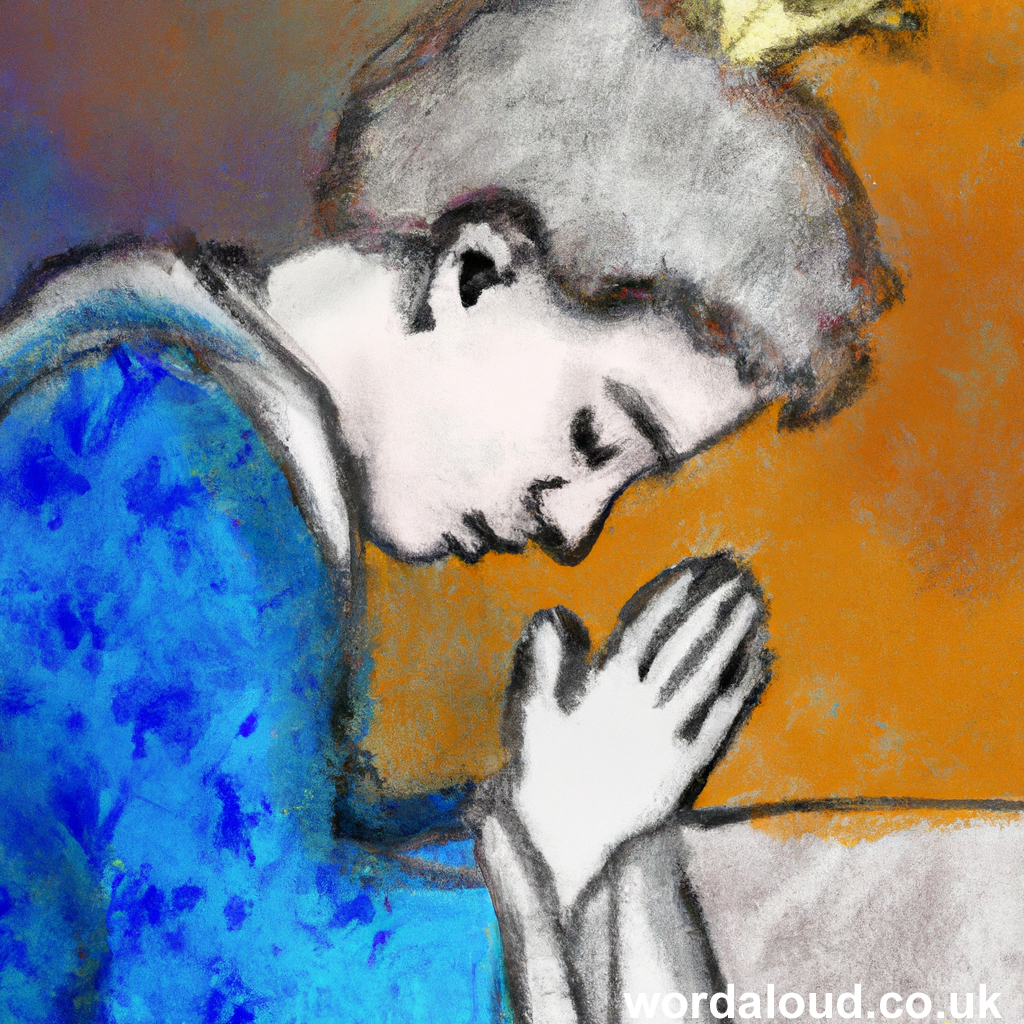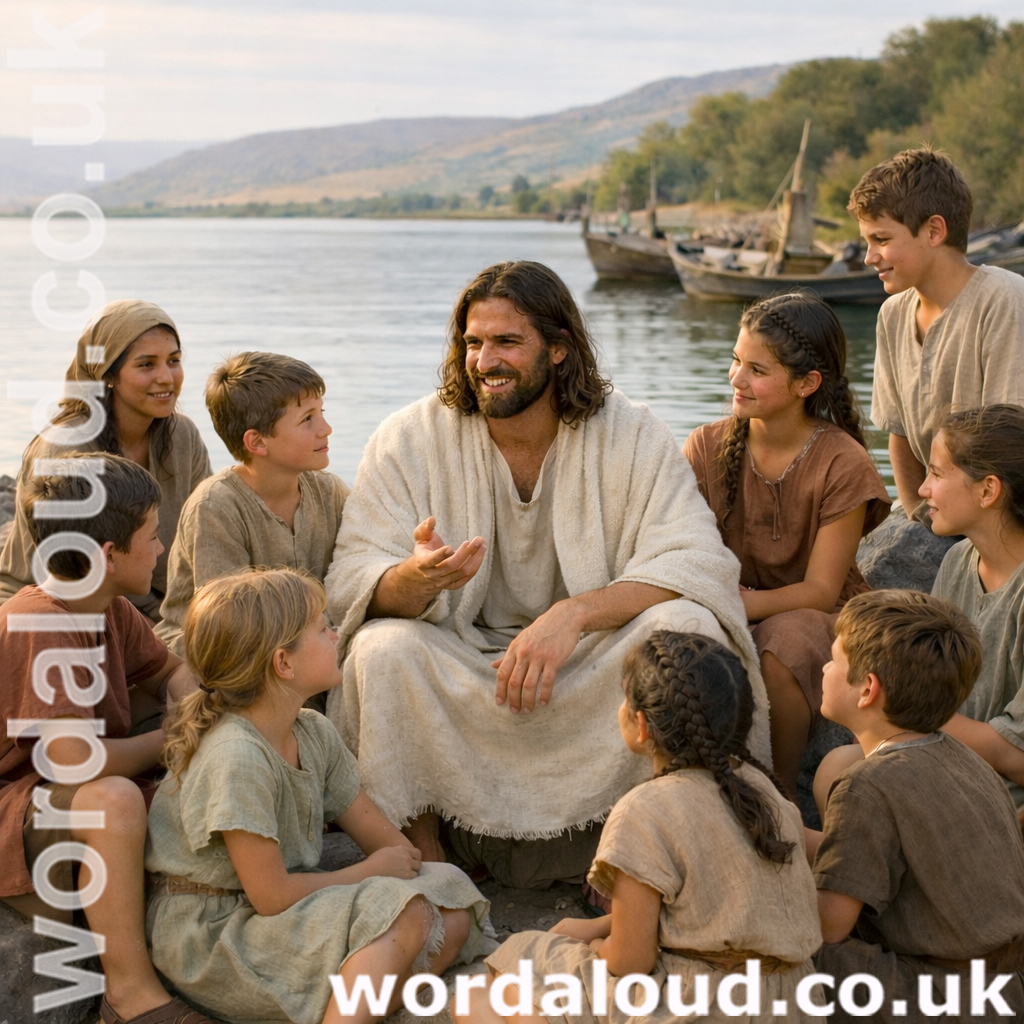George Herbert | The Temple | The Church | The Thanksgiving
Oh King of grief! (a title strange, yet true,
To thee of all kings onely due)
Oh King of wounds! how shall I grieve for thee,
Who in all grief preventest me?
Shall I weep bloud? why thou hast wept such store
That all thy body was one doore.
Shall I be scourged, flouted, boxed, sold?
’Tis but to tell the tale is told.
My God, my God, why dost thou part from me?
Was such a grief as cannot be.
Shall I then sing, skipping, thy dolefull storie,
And side with thy triumphant glorie?
Shall thy strokes be my stroking? thorns, my flower?
Thy rod, my posie? crosse, my bower?
But how then shall I imitate thee, and
Copie thy fair, though bloudie hand?
Surely I will reuenge me on thy love,
And trie who shall victorious prove.
If thou dost give me wealth; I will restore
All back unto thee by the poore.
If thou dost give me honour; men shall see,
The honour doth belong to thee.
I will not marry; or, if she be mine,
She and her children shall be thine.
My bosome friend, if he blaspheme thy name,
I will tear thence his love and fame.
One half of me being gone, the rest I give
Unto some Chappell, die or live.
As for thy passion—But of that anon,
When with the other I have done.
For thy predestination I’le contrive,
That three yeares hence, if I survive,
I’le build a spittle, or mend common wayes,
But mend mine own without delayes.
Then I will use the works of thy creation,
As if I us’d them but for fashion.
The world and I will quarrell; and the yeare
Shall not perceive, that I am here.
My musick shall finde thee, and ev’ry string
Shall have his attribute to sing;
That all together may accord in thee,
And prove one God, one harmonie.
If thou shalt give me wit, it shall appeare,
If thou hast giv’n it me, ’tis here.
Nay, I will reade thy book, and never move
Till I have found therein thy love;
Thy art of love, which I’le turn back on thee,
O my deare Saviour, Victorie!
Then for thy passion—I will do for that –
Alas, my God, I know not what.
George Herbert | The Temple | The Church | The Thanksgiving
The poem presents a dialogue between the poet and Christ. The poem meditates on themes of suffering, devotion, and humility. The poet addresses Christ as ‘King of grief’ and ‘King of wounds’, acknowledging the paradox of Christ’s suffering in contrast to his divine kingship. The poem opens by framing Christ’s agony as unique among rulers, a grief so profound that it overshadows all others.
The poet questions how best to respond to Christ’s pain and wonders if intense expressions of grief—such as weeping blood or undergoing physical suffering—could mirror Christ’s sacrifice. Yet, each proposed action is ultimately deemed insufficient, as Christ’s suffering surpasses human capacity for empathy. The poet realizes that any attempt to replicate Christ’s suffering will fall short because Christ’s anguish is unparalleled.
As the poem progresses, the poet shifts from contemplating physical acts of mourning to considering forms of devotion that might reflect Christ’s sacrifice more meaningfully. These acts include using wealth to help the poor, redirecting personal honour to glorify Christ, and dedicating relationships and possessions to Jesus. Here, the poet grapples with personal surrender as a form of spiritual alignment with Christ’s example. Such commitments reflect the poet’s understanding that true devotion lies not in replicating Christ’s suffering directly but in living a life that honours Christ’s teachings.
This leads to a series of paradoxes: ‘Shall thy strokes be my stroking? Thorns, my flower?’ The poet contrasts the pain associated with Christ’s crucifixion—such as being struck and crowned with thorns—with symbols of comfort, beauty, and peace. This paradox illustrates the poet’s recognition that human beings might find comfort in what Christ experienced as pain, emphasizing the depth of Christ’s sacrifice.
The poet ultimately resolves to ‘avenge’ Christ’s love. Here, ‘revenge’ does not imply retaliation but rather a commitment to mirror and extend Christ’s love through acts of sacrifice and humility. The poet pledges to build a ‘hospital’ or improve public ways, which signifies a dedication to selfless, charitable acts that benefit others. Additionally, the poet states an intention to distance himself from worldly pleasures, engaging with creation ‘as if I used them but for fashion’ and committing to a life that transcends worldly attachments.
The poem closes with an affirmation to explore God’s love as expressed through scripture, seeking not to experience Christ’s suffering directly but to understand his love. This understanding is intended as the poet’s ultimate devotion. However, he acknowledges a limit to his comprehension, ending with an ambiguous commitment to honour Christ’s ‘passion’ without specifying how, admitting, ‘I know not what.’ This conclusion underscores the poet’s humility, acknowledging inadequacy of human efforts fully to grasp or repay depth of Christ’s sacrifice.
Throughout, the poem juxtaposes the poet’s own limitations against Christ’s infinite love and sacrifice. Rather than suggesting that humans can emulate Jesus’ actions directly, the poem points to a path of internal transformation and devotion.
![]()









